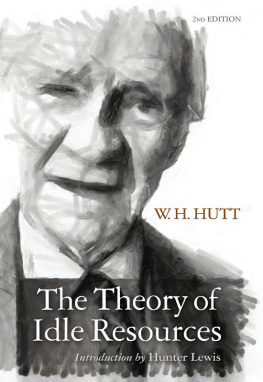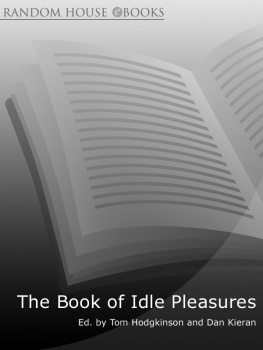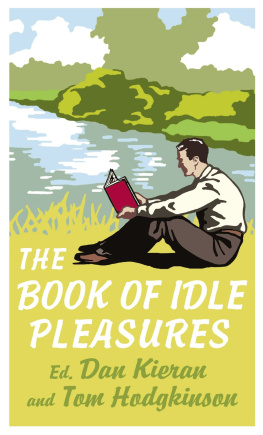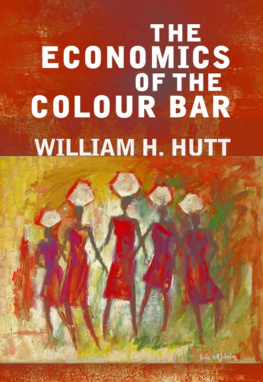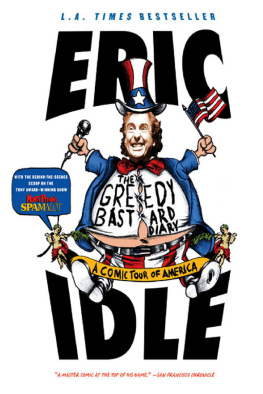Hutt - The Theory of Idle Resources
Here you can read online Hutt - The Theory of Idle Resources full text of the book (entire story) in english for free. Download pdf and epub, get meaning, cover and reviews about this ebook. City: Auburn;Ala, year: 2011, publisher: Ludwig von Mises Institute, genre: Science. Description of the work, (preface) as well as reviews are available. Best literature library LitArk.com created for fans of good reading and offers a wide selection of genres:
Romance novel
Science fiction
Adventure
Detective
Science
History
Home and family
Prose
Art
Politics
Computer
Non-fiction
Religion
Business
Children
Humor
Choose a favorite category and find really read worthwhile books. Enjoy immersion in the world of imagination, feel the emotions of the characters or learn something new for yourself, make an fascinating discovery.
- Book:The Theory of Idle Resources
- Author:
- Publisher:Ludwig von Mises Institute
- Genre:
- Year:2011
- City:Auburn;Ala
- Rating:4 / 5
- Favourites:Add to favourites
- Your mark:
- 80
- 1
- 2
- 3
- 4
- 5
The Theory of Idle Resources: summary, description and annotation
We offer to read an annotation, description, summary or preface (depends on what the author of the book "The Theory of Idle Resources" wrote himself). If you haven't found the necessary information about the book — write in the comments, we will try to find it.
Hutt: author's other books
Who wrote The Theory of Idle Resources? Find out the surname, the name of the author of the book and a list of all author's works by series.
The Theory of Idle Resources — read online for free the complete book (whole text) full work
Below is the text of the book, divided by pages. System saving the place of the last page read, allows you to conveniently read the book "The Theory of Idle Resources" online for free, without having to search again every time where you left off. Put a bookmark, and you can go to the page where you finished reading at any time.
Font size:
Interval:
Bookmark:
THE THEORY OF
IDLE RESOURCES
The Theory of
IDLE RESOURCES
W. H. HUTT

Second Edition
LvMI
MISES INSTITUTE

First published in 1939 by Jonathan Cape, London, and Toronto
Copyright 2011 by the Ludwig von Mises Institute and published under the Creative Commons Attribution License 3.0.
http://creativecommons.org/licenses/by/3.0/
Ludwig von Mises Institute
518 West Magnolia Avenue
Auburn, Alabama 36832
Mises.org
ISBN: 978-1-933550-95-4


G ENIUS DOES NOT always announce itself. This was especially true of William H. Hutt. There was nothing about him to attract attention. He was born in London of working class parents, earned a bachelors degree in economics from The London School of Economics in 1924, worked for a London publishing firm, migrated to South Africa where he lectured obscurely in economics, before eventually retiring and moving to the U.S. in 1965. He was slight in frame and modest in manner, never pushing, always delighted to see the triumphs of others. He identified himself as a classical economist, not a member of any contemporary group or movementhow easy indeed to overlook him, but what a mistake to do so.
Hutts mind was made for logic. It could see a logical problem from every side, draw every distinction and nuance, then penetrate right to the bottom of it. No fallacy was safe from him and, without being the least combative, he never flinched from telling the unvarnished truth.
The history of modern economics is full of destructive fallacies, beginning with the mercantilists, continuing through Karl Marx, and culminating with John Maynard Keynes. These false ideas have impoverished billions of people and caused no end of needless suffering. When Keynes published his magnum opus, The General Theory of Employment, Interest, and Money in 1936, a potpourri of fallacies supported by obscurity, shifting definitions, and other rhetorical tricks, many economists criticized it privately, but very few did so publicly. Why? Because Keynes was an intimidating figure, the best known economist in the world, a master publicist and polemicist, the editor of The Economic Journal, an essential venue for English speaking economists.
In the Preface to The Theory of Idle Resources, completed a year after Keyness General Theory appeared, and published two years later in 1939,
Keyness argument may be simplified as follows. Full employment should be our goal. The market system will not get us there; it requires government help as well as guidance. This means, in practice, that government will continually print money, in order to reduce interest rates, ultimately to zero
In a variety of books and articles, Hutt pointed out the absurdity of this. One cannot create wealth simply by printing more money or by borrowing and spending funds which can never be repaid. Moreover, the real source of unemployment is some disturbance in the price and profit system. Government cannot possibly help matters by intervening in ways which further distort and disturb that system.
In his Theory of Idle Resources, Hutt deconstructs even the initial premise of Keyness thinking, that we should want a permanent condition of full employment. Not only is full employment not definable; it is not even desirable. A moments thought will show this to be true. To grow, an economy must change. To change, assets and workers must be shifted from where they are less needed (less productive) to where they are more needed (more productive). These shifts will inevitably produce temporary unemployment. If there had never been unemployment, and thus no economic change, we would all still be living in caves, and there would be far fewer of us, because hunting and gathering would only support a small fraction of the present population.
This insight is not original to Hutt. The economic writer Henry Hazlitt, a friend of Hutts, found similar observations in a paper written by John Stuart Mill during 182930 when he was age twenty-four, and collected in his Essays on Some Unsettled Questions of Political Economy. Mills paper completely refutes Keyness false contention that classical economists simply assumed that there would always be full employment. But Hutt takes the examination of unemployment much further than the pioneering Mill. Indeed, he does not just examine unemployment. He examines unemployment as part of the larger phenomenon of unused or idle productive resources, including land, plant, equipment, and money as well as workers.
Hutts careful reasoning demonstrates, through a variety of illustration, that we cannot just lump together (and falsely quantify) all the complexities of human choice and action working within a closely coordinated price and profit system. What looks like non-productive idleness may actually be very productive, indeed essential to the smooth working of the system. Is it more productive for a highly trained but unemployed engineer to bag groceries for pay or to invest time without pay in looking for an engineering job? If he or she took the grocery bagging job, Keynes would presumably be satisfied; we would be closer to full employment. But the economy would clearly not be more productive, which it must be to create new jobs. We should also keep in mind that an employment agency employee job searching for the engineer would be considered gainfully employed, while the engineer doing the same work would still be unemployed.
This brings us to Hutts crucial concept of sub-optimal employment, not fully worked out in this book, but a crucial contribution to economic thought. Government intervention to stimulate the economy and increase employment not only reduces employment over the long run. It also creates an enormous amount of sub-optimal employment, which means that it leaves people unable to find the work for which they are best suited.
A simple example of this may be drawn from the U.S. housing bubble that burst in 20072008. For the period 20022008, out-of-control Federal Reserve money printing and a host of other government policies and programs blew up the bubble. Millions of people not especially suited for construction were pulled into this sector and put to work building homes that, in the end, no one wanted. When the bubble burst, even the most highly trained construction workers suddenly found themselves unable to get any construction work at all.
The underlying problem here is that, contra Keynes, we do not want employment for its own sake. It is a means, not an end. What we want is a productive economy, and government stimulus gives us, as Henry Hazlitt has said, unbalanced production, misdirected production, production of the wrong things..., [all of which lead inexorably] to unemployment and mal-employment.
In speaking of optimal versus sub-optimal employment, Hutt, the master logician, was drawing a logical distinction between quality and quantity. This is an inconvenient distinction for Keynesian-derived macro-economists; there is no way to fit quality into their equations. But in economics, as in life as a whole, quality is even more important than quantity.
This is especially true in investment. Keynes said that any investment is better than no investment. Indeed, in the absence of his indefinable state of full employment, he thought that any spending, whether consumption or investment, was better than no spending. This is why government must keep printing money: the resulting reduction in interest rates should encourage more and more investment and spending.
Next pageFont size:
Interval:
Bookmark:
Similar books «The Theory of Idle Resources»
Look at similar books to The Theory of Idle Resources. We have selected literature similar in name and meaning in the hope of providing readers with more options to find new, interesting, not yet read works.
Discussion, reviews of the book The Theory of Idle Resources and just readers' own opinions. Leave your comments, write what you think about the work, its meaning or the main characters. Specify what exactly you liked and what you didn't like, and why you think so.

